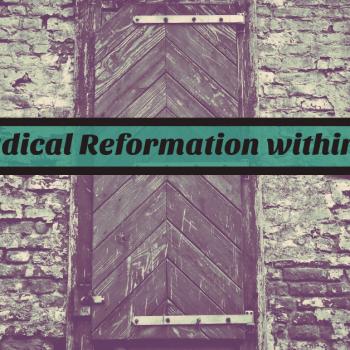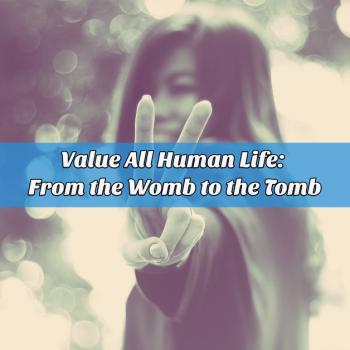
There was a moment in my life that I had to make a choice. Would I listen to my older cousin or would I do what was right? It was Easter and I was six. All of the grandkids were sent upstairs into the bedroom while my family went outside to hide eggs. What my cousin saw as an opportunity my gut told me was an obstruction of justice. A desecration of the wonderful art of hide and seek, the act of the surprise of finding Easter eggs.
Facing the main part of the yard was a widow. Inevitably, I followed suit and that day we became like the spies sent into Jericho; we watched our family hide the eggs from that upstairs bedroom. Rather than experiencing the shock value of actually discovering eggs for the first time, we knew exactly where to look. The whole experience was sanitized.
On Easter Sunday there is about a one-in-four chance that your church community will reflect on John 20, which bears an account of the greatest event in history – the resurrection of Jesus. The resurrection is the most beautiful thing that the church has to offer the world. Nevertheless, each year it becomes the “old familiar story” instead of the fresh way that God is transforming all of reality. It is almost as though it loses its shock value, that it too has become sanitized.
John’s gospel is quite interesting in how the author chose to arrange its pages. Notice how it begins:
1 In the beginning was the Word, and the Word was with God, and the Word was God… Through him all things were made… (John 1.1, 3a)
The first line of this story should jump out and scream of familiarity! We need to ask ourselves: where else in the Bible does it say something similar? O… I know—Genesis 1! So, whatever John is writing, we ought to read with the original “In the beginning” story in mind.
John 20 begins with an interesting detail that not only serves to give us the exact day that Jesus rose from the dead, but a clue into something deeper. The writer states: “Early on the first day of the week…” (John 20.1a).
What does that have to do with anything? Now, couldn’t the author just as easily have said “On Sunday?” Well, it seems that John is emphasizing something quite specific. This minor detail is so important that later in verse 19 it is repeated.
John makes sure that we have the Genesis creation stories in the back of our minds as we read the rest of his Gospel and sees an urgency to make clear that we understand the flow of the passion narrative. Jesus dies on the sixth day of the week (oddly enough when humanity is created in Genesis 1) and rises on the 1st day of the next week. Or, to say in another way, Jesus’ resurrection happens on the first day of a new week. N.T. Wright describes it this way:
“John 20 stresses twice… that Easter is the first day of the new week… The Word through whom all things were made is now the Word though whom all things are remade… Jesus’ resurrection is to be seen as the beginning of the new world, the first day of the new week, the unveiling of the prototype of what God is now going to accomplish in the rest of the world.”[1]
John helps the reader understand that Jesus’ resurrection is the beginning of the process of God recreating the world. Jesus is re-created first and then someday, the rest of humanity that are in relationship to God will be re-created, along with the rest of the created order! When Jesus walks out of the tomb on that first Easter morning hope for something more collides into reality!
In another place, John describes in great detail what the world will be like when the new week that Jesus inaugurated comes to its completion. In Revelation 21-22 we find that the heavenly New Jerusalem will come down to this earth! Eternity in God’s restored world will be the completion of creation, the beautiful collision of heaven into earth. “There will be no more death’ or mourning or crying or pain, for the old order of things has passed away” (Revelation 21.4). Throughout the New Testament we, the people of God, are summoned to live as though tomorrow’s new creation reality has already begun; because according to John 20 – indeed, it already has!
Easter will arrive and pass as it does every year. We can sit upstairs and look out of the window, and see exactly where the eggs are going to be hidden or we can move into Easter with the anticipation that God is doing something that is like the surprise of stumbling upon an egg in the yard. We can continue to let the “old story” be redundant and sanitized, or we can realize that the resurrection is all about God doing something fresh in the world, and is our opportunity to join him in this new creation work. May our culture see glimpses of the resurrection through our churches as we live as conduits of the new week of creation!
[1] N. T. Wright, Surprised By Hope: Rethinking Heaven, The Resurrection, and The Mission of The Church (New York: HarperCollins Publishers, 2008), 238.












